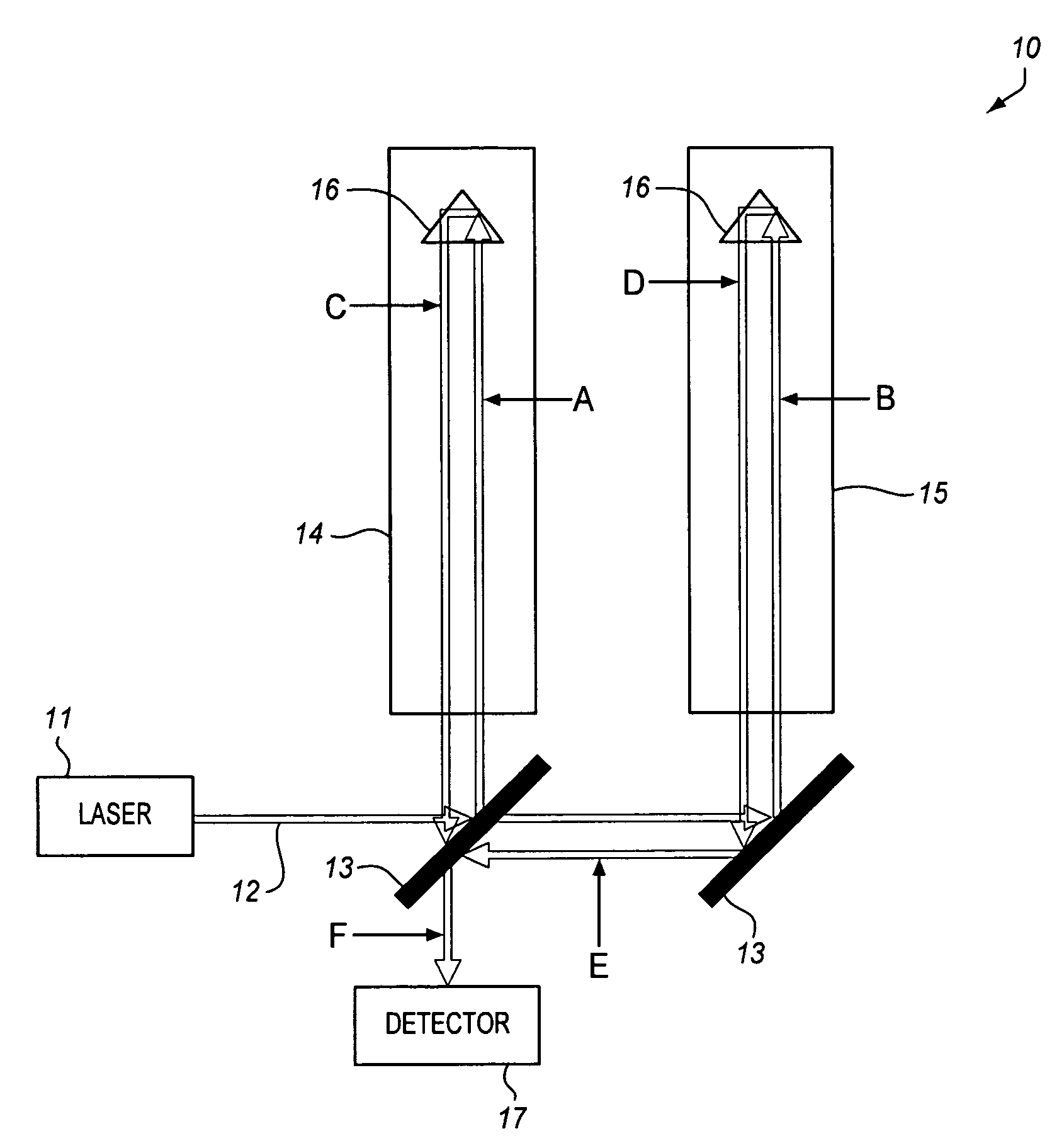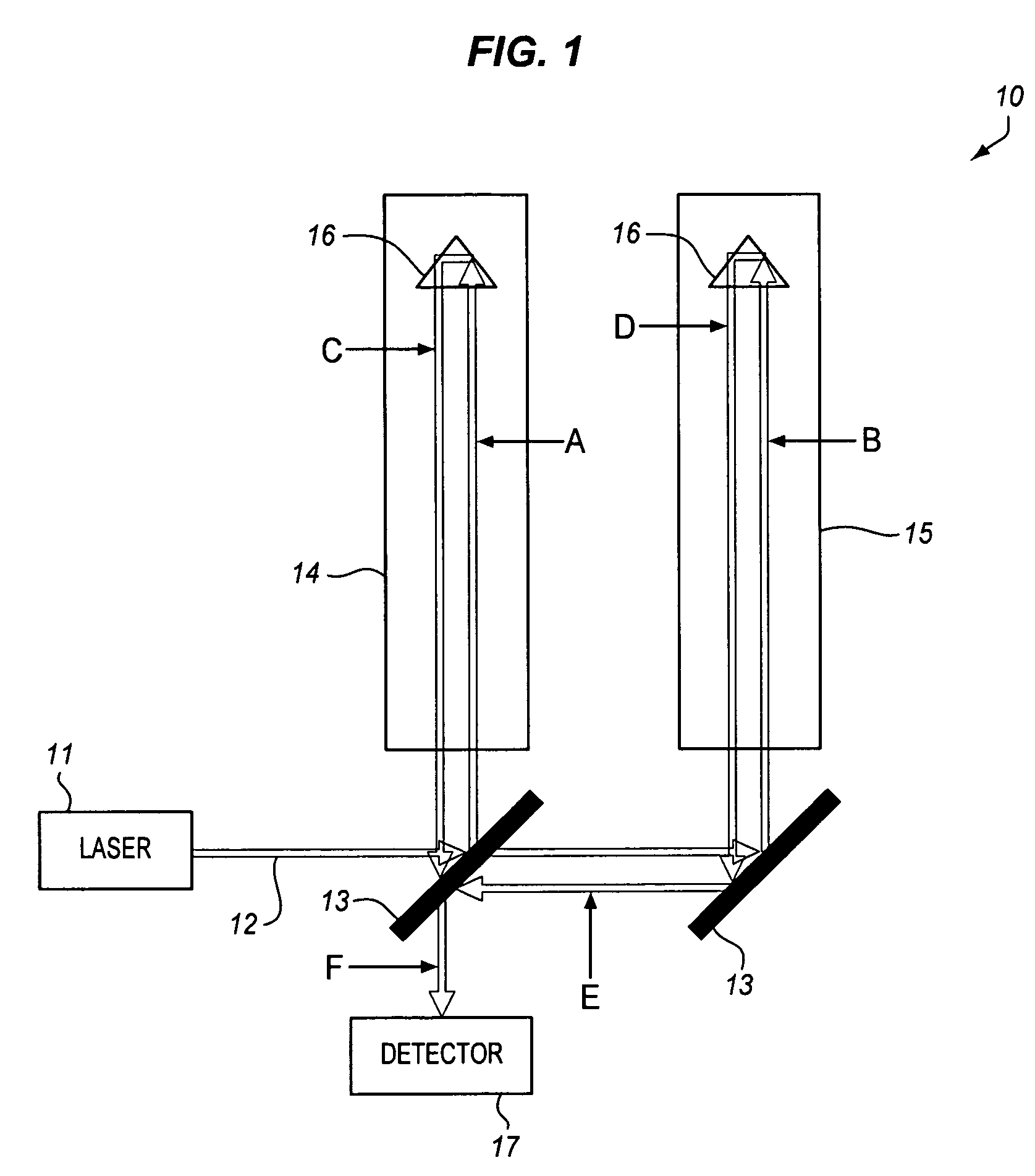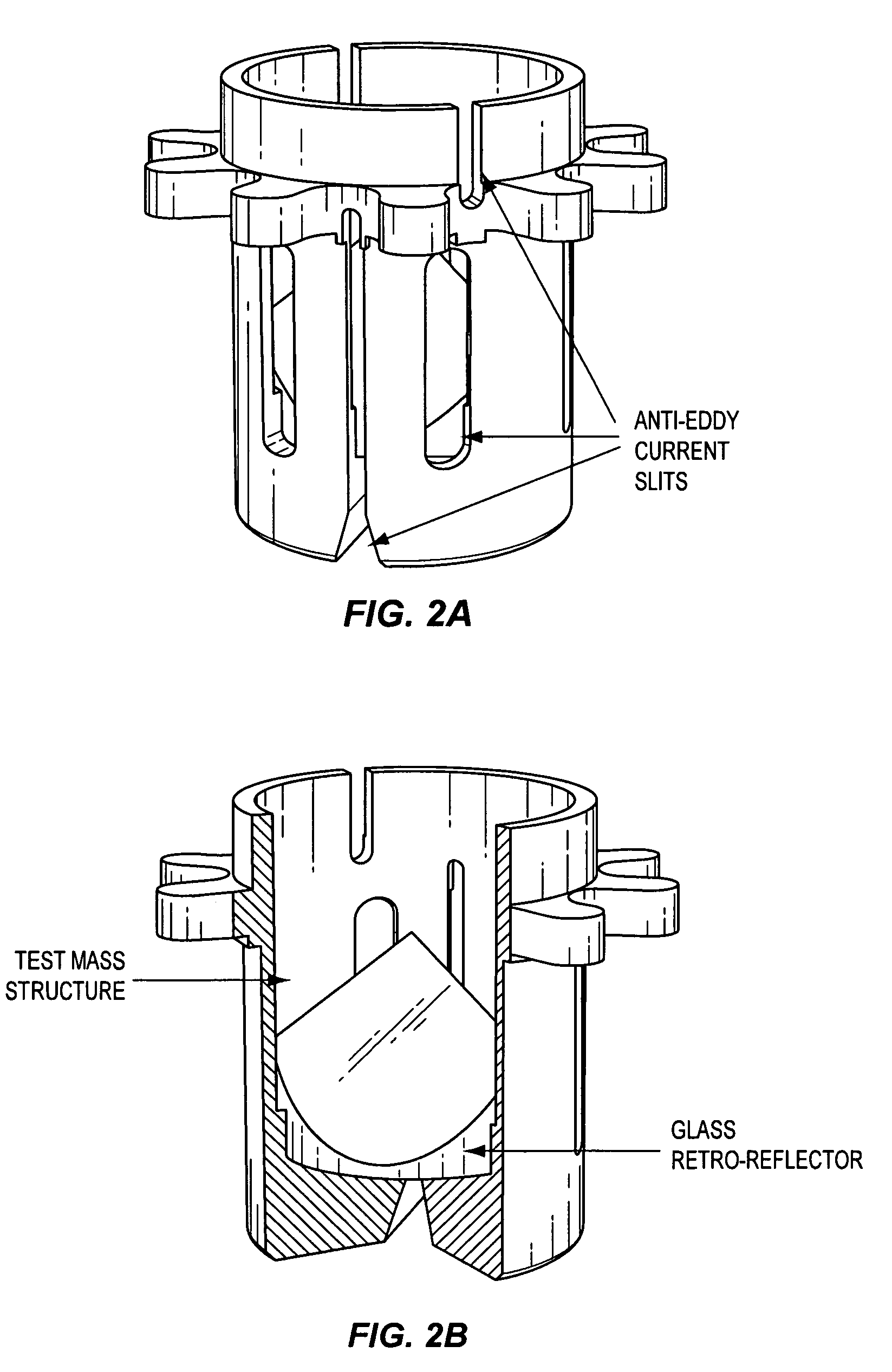Test mass for gravimeters and gradiometers
a gravimeter and gradiometer technology, applied in the direction of liquid/fluent solid measurement, machines/engines, instruments, etc., can solve the problems of difficult formation of eddy currents, reduce the influence of nearby electromagnetic fields, reduce or eliminate sources of systematic errors
- Summary
- Abstract
- Description
- Claims
- Application Information
AI Technical Summary
Benefits of technology
Problems solved by technology
Method used
Image
Examples
example 1
Use of a Test Mass According to an Embodiment of the Present Invention Near an Electric or Magnetic Field
[0033]Perforated, conducting test masses of the present invention were used to replace conventional conducting, imperforated test masses in an FG5 interferometer located near a pumphouse containing an electric motor that produced a large electromagnetic field. Prior to the replacement of the test masses, interference affecting the accuracy of gravity measurements was observed due to the presence of large and unavoidable electromagnetic fields. Upon replacement of the conventional test masses with the perforated test masses, improved accuracy of about 5×10−7 m·s−2 was observed.
PUM
 Login to View More
Login to View More Abstract
Description
Claims
Application Information
 Login to View More
Login to View More - R&D
- Intellectual Property
- Life Sciences
- Materials
- Tech Scout
- Unparalleled Data Quality
- Higher Quality Content
- 60% Fewer Hallucinations
Browse by: Latest US Patents, China's latest patents, Technical Efficacy Thesaurus, Application Domain, Technology Topic, Popular Technical Reports.
© 2025 PatSnap. All rights reserved.Legal|Privacy policy|Modern Slavery Act Transparency Statement|Sitemap|About US| Contact US: help@patsnap.com



